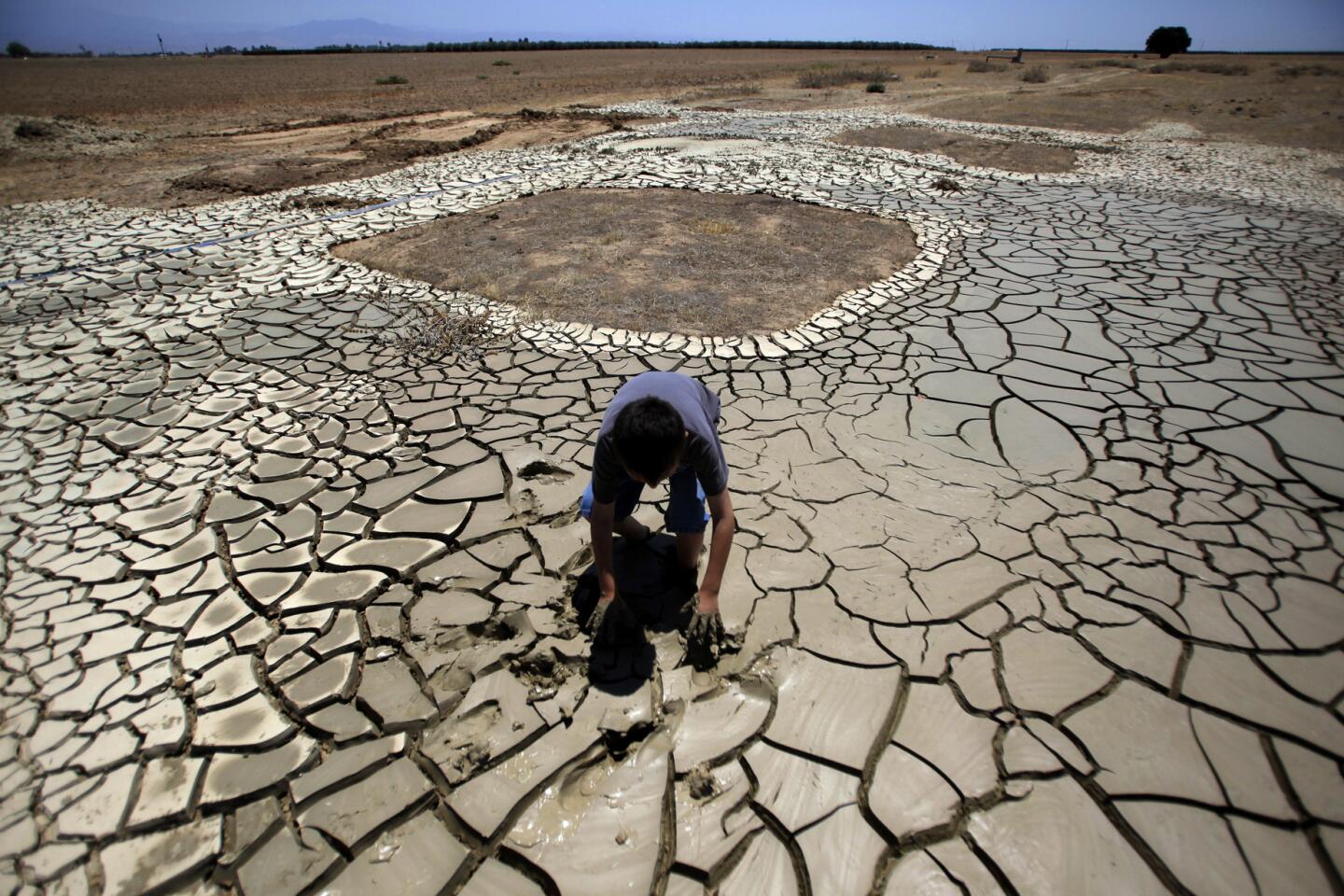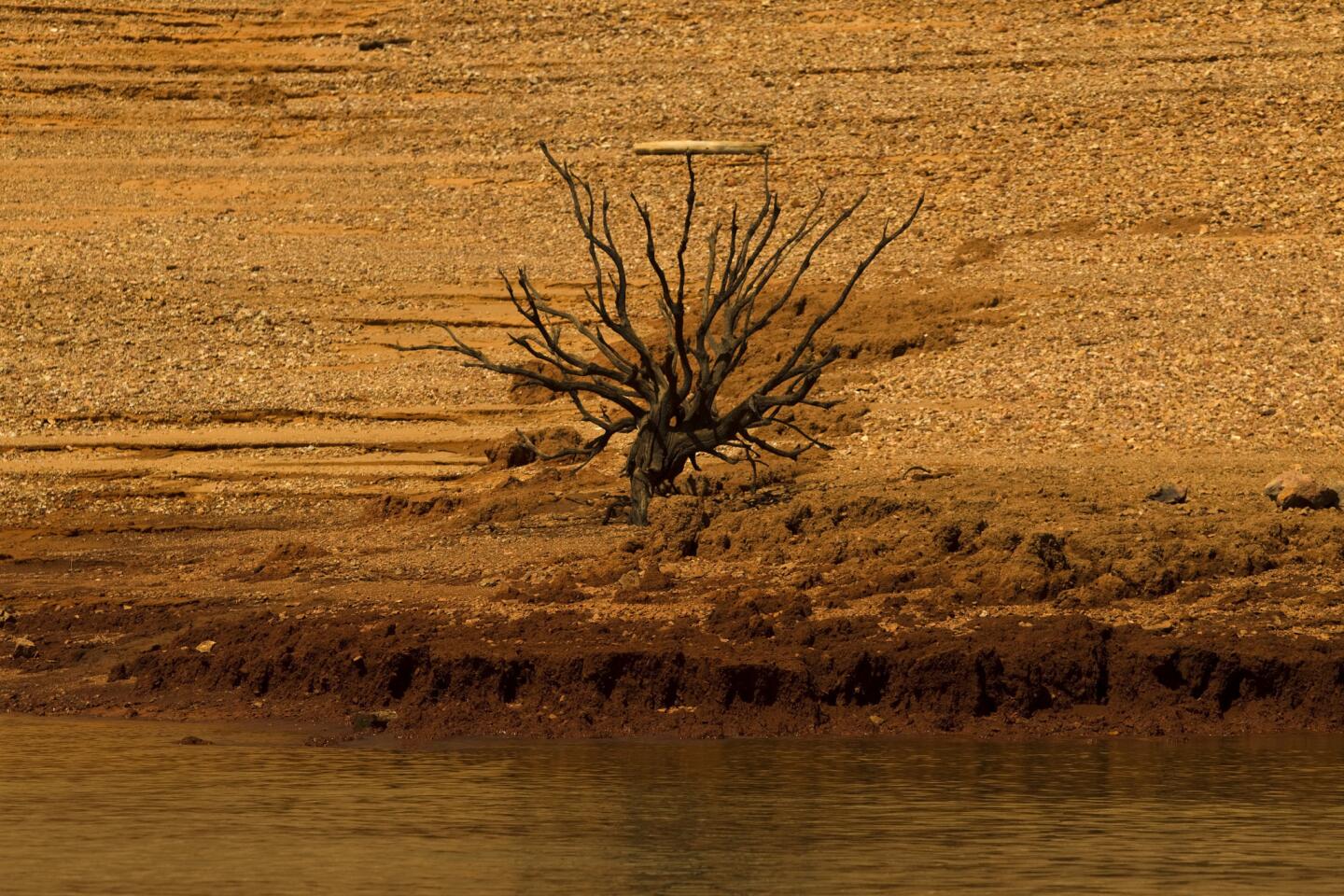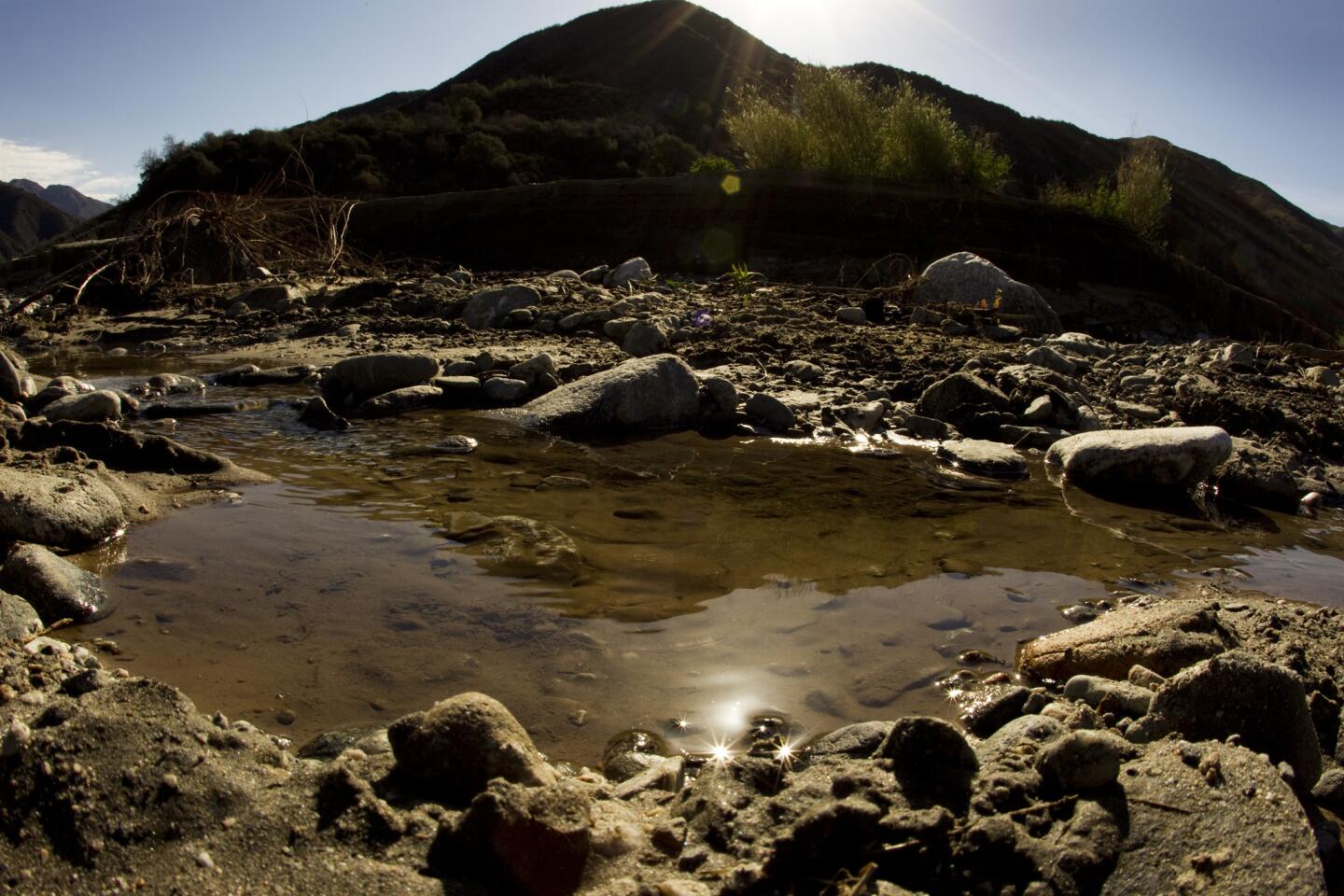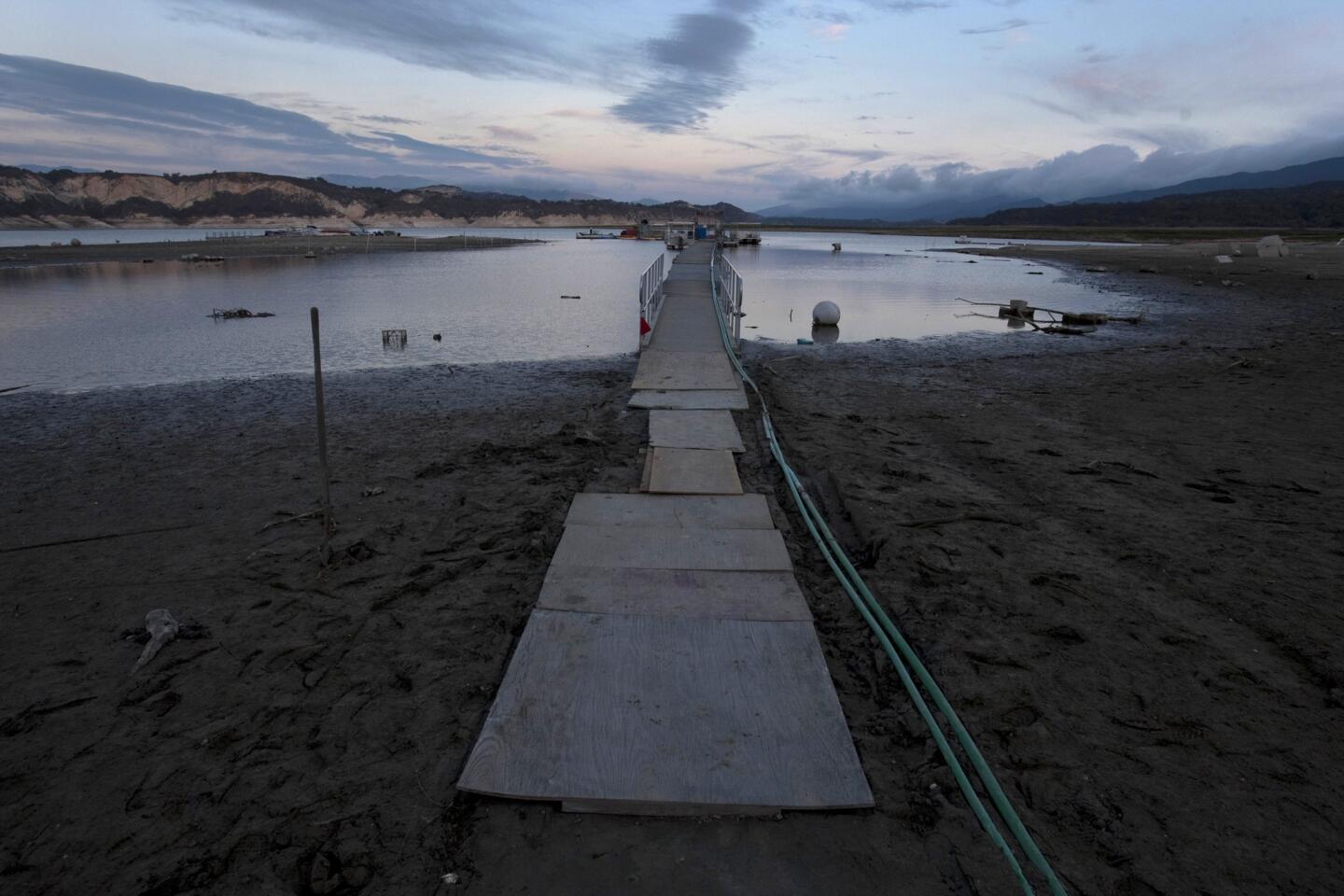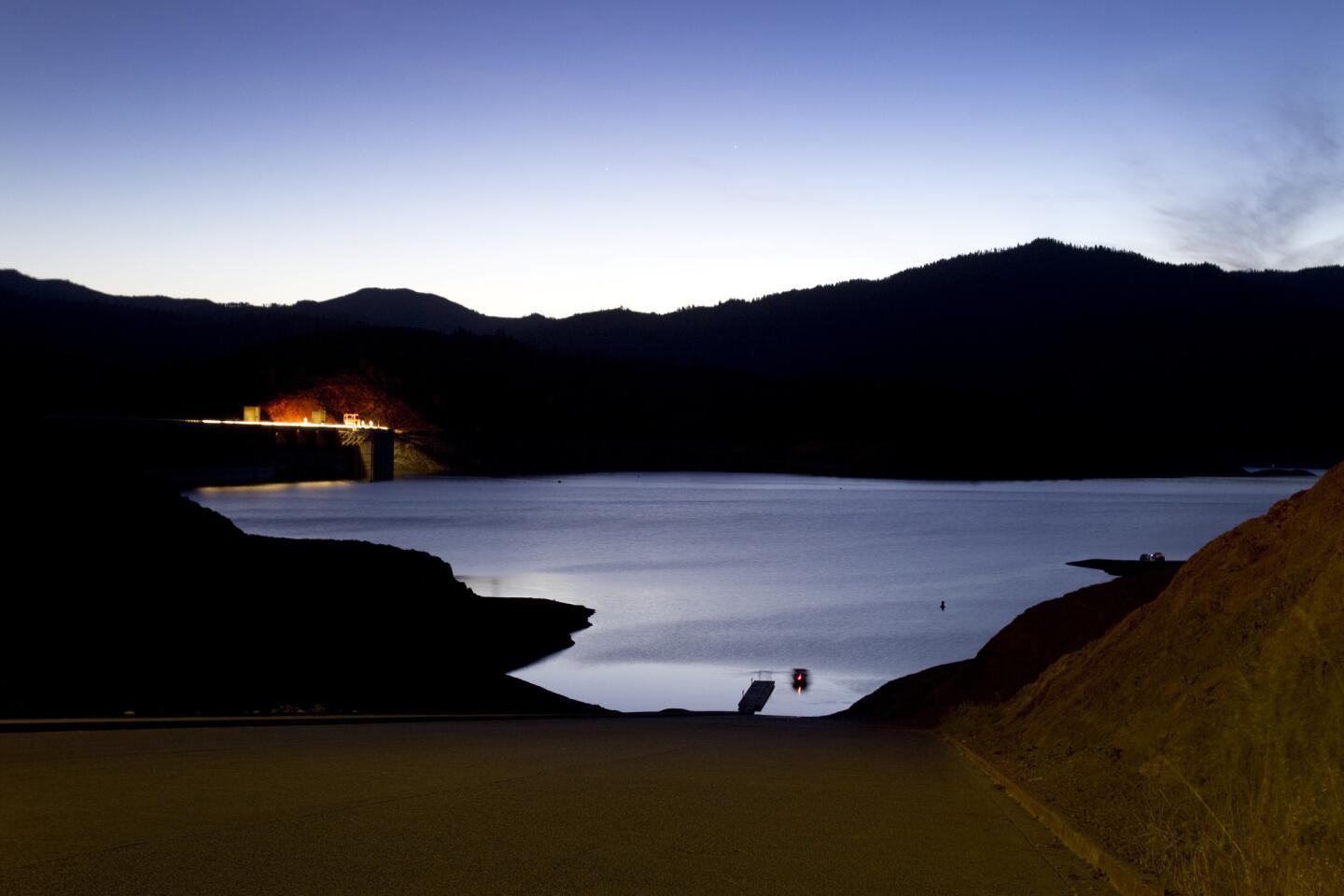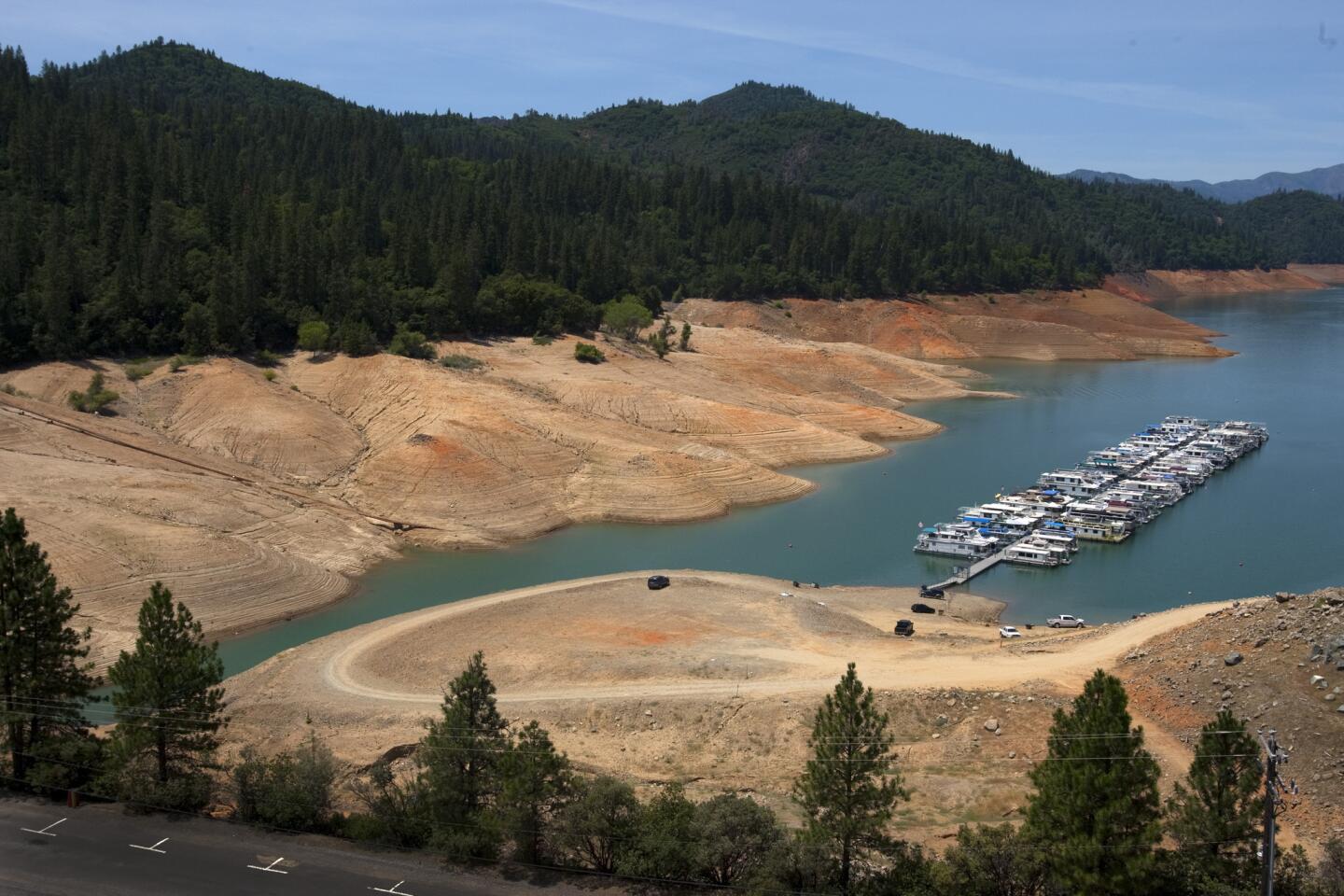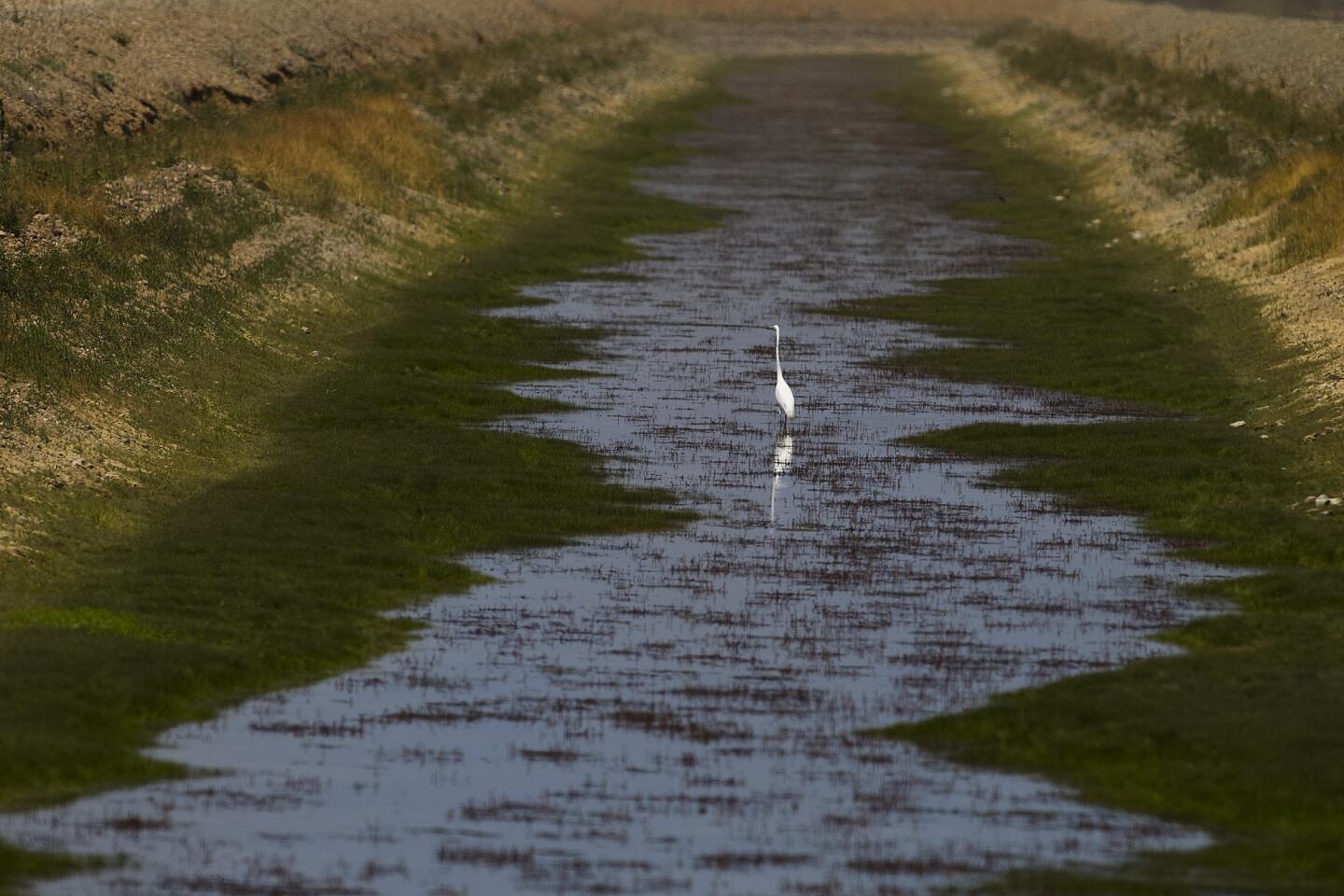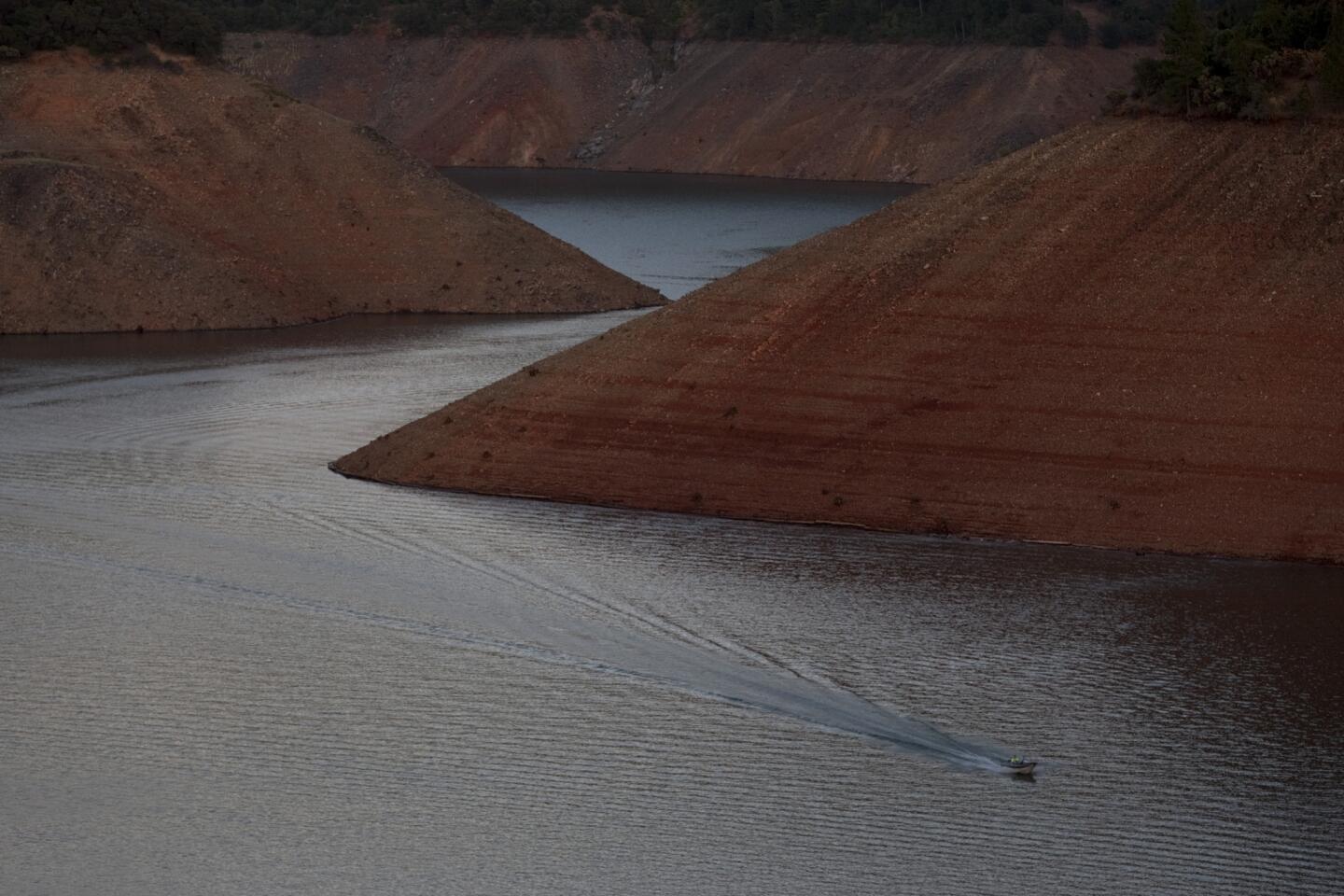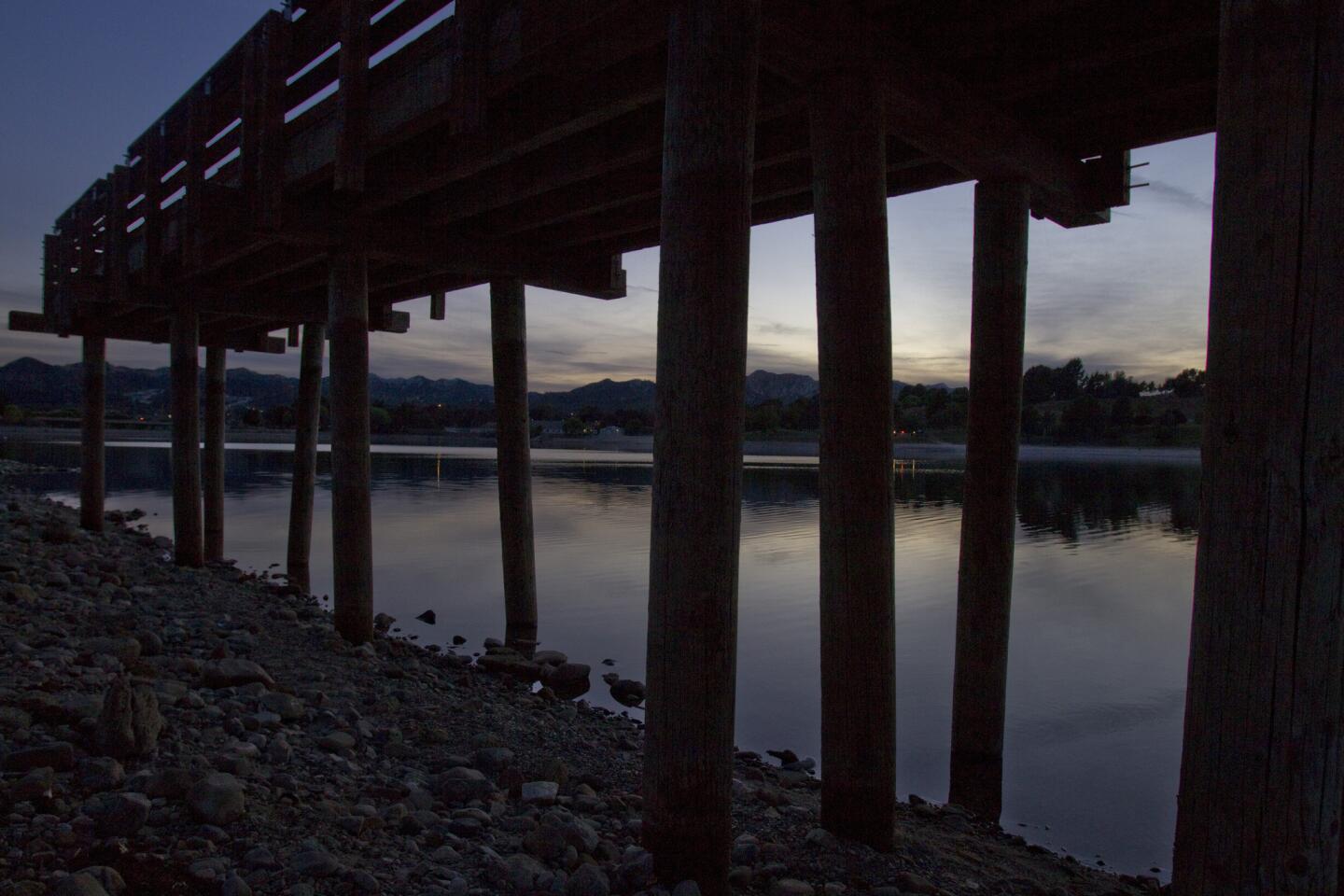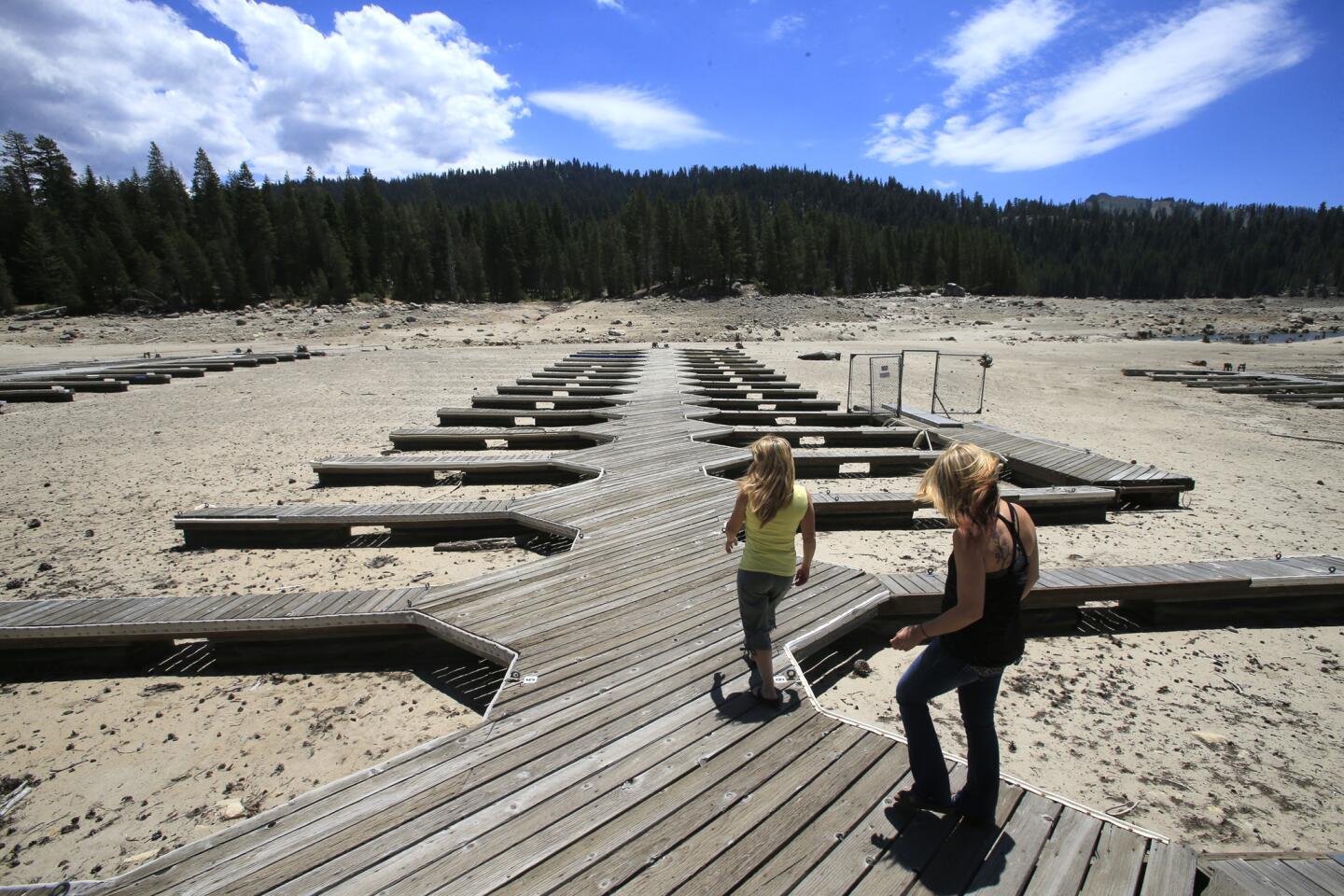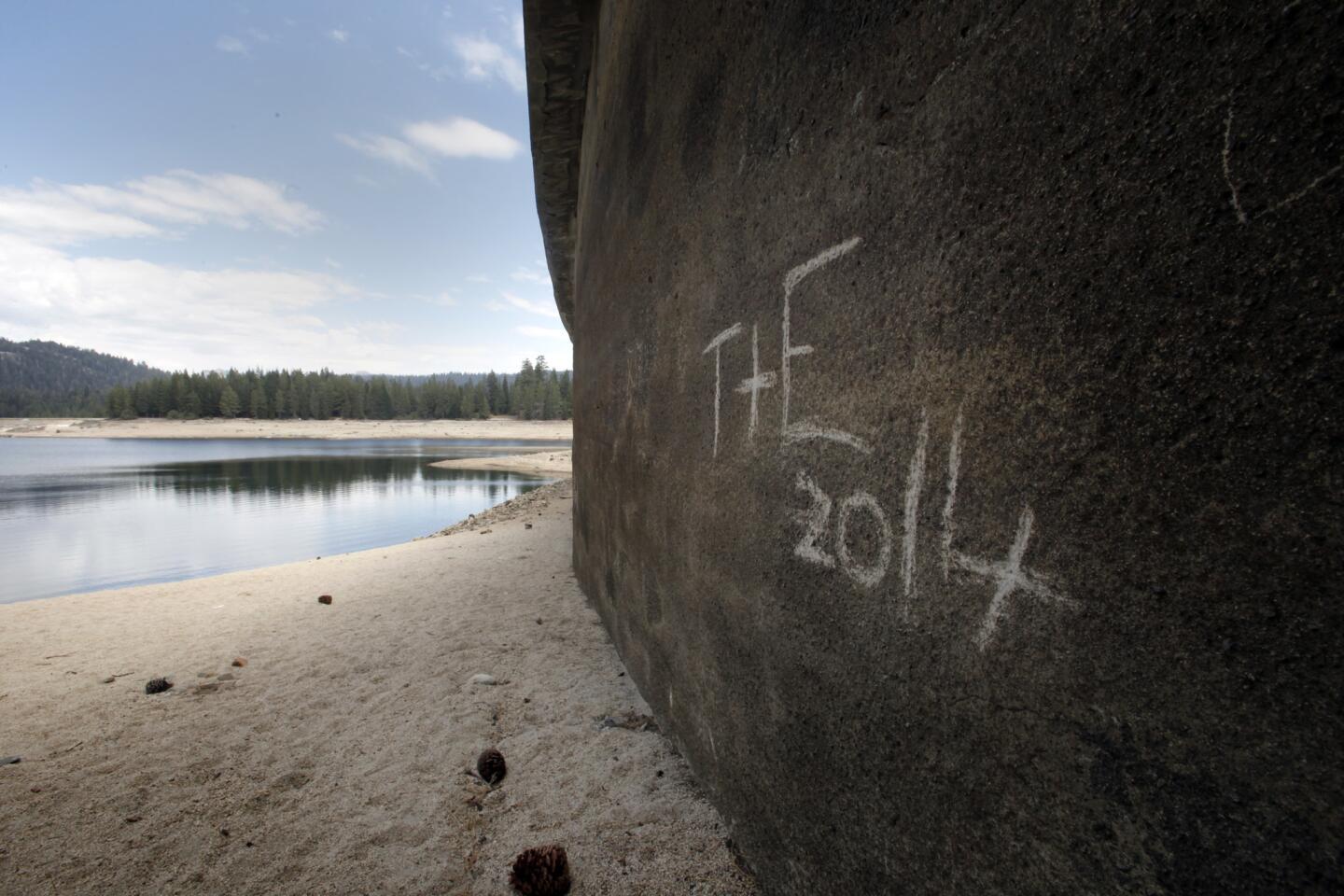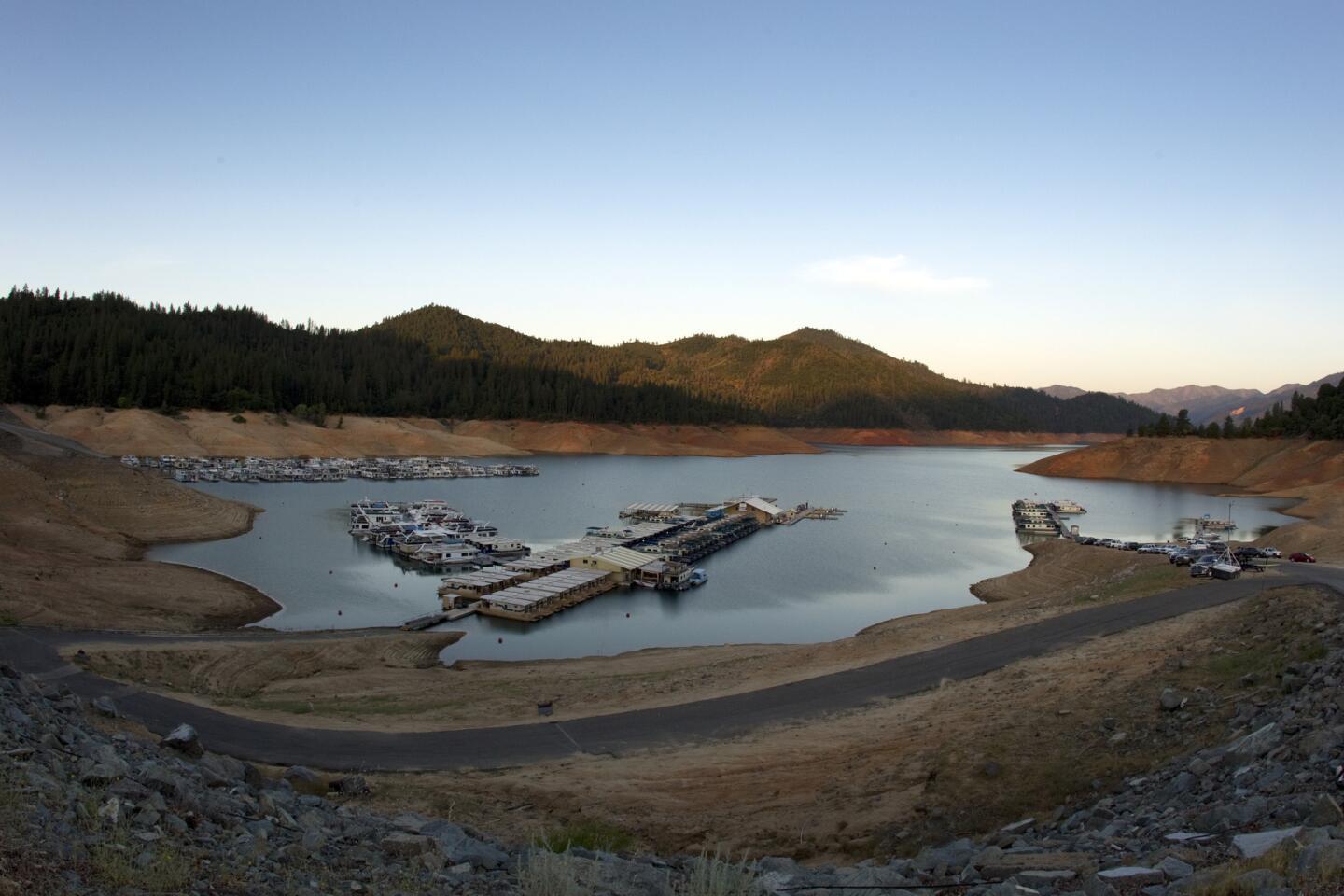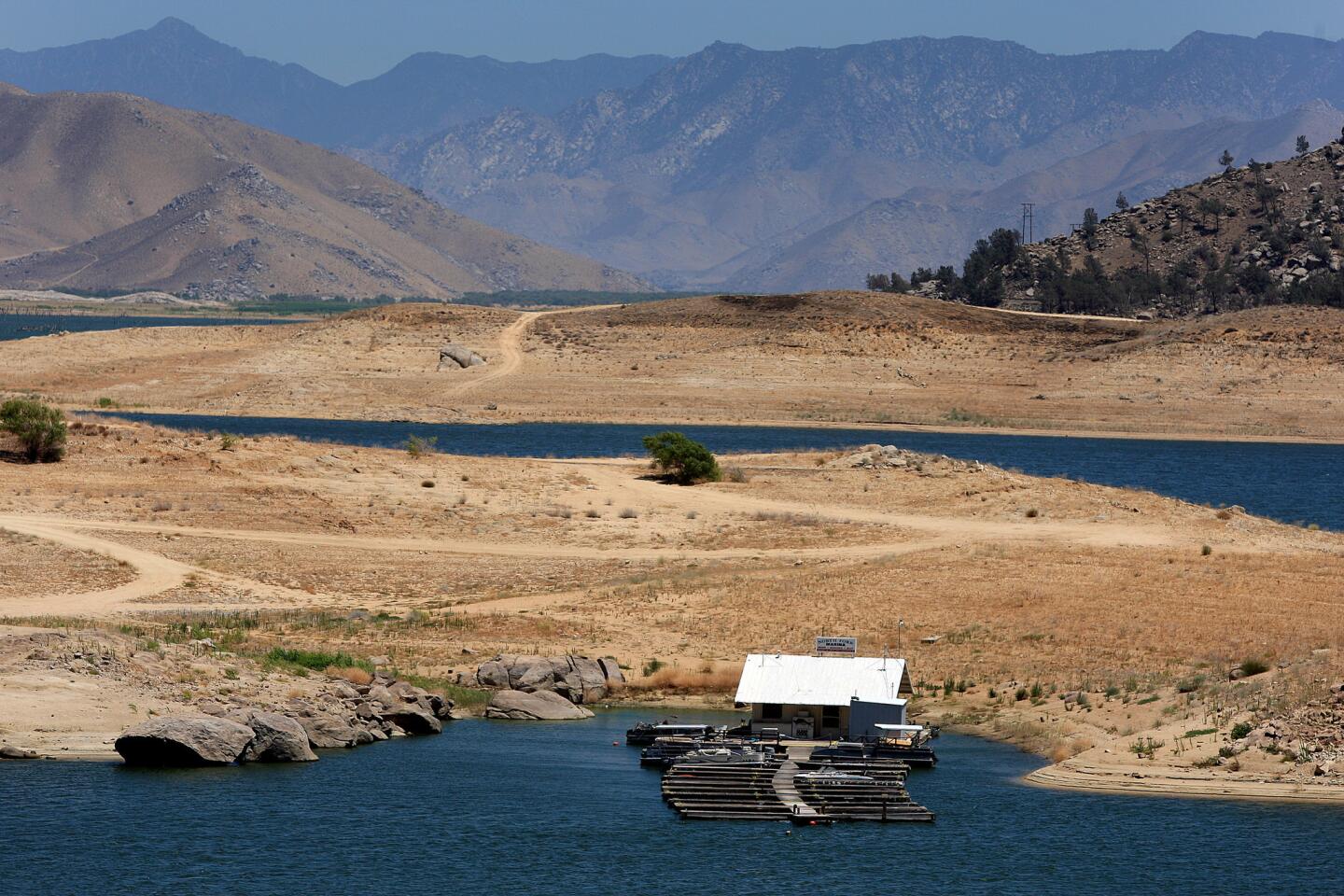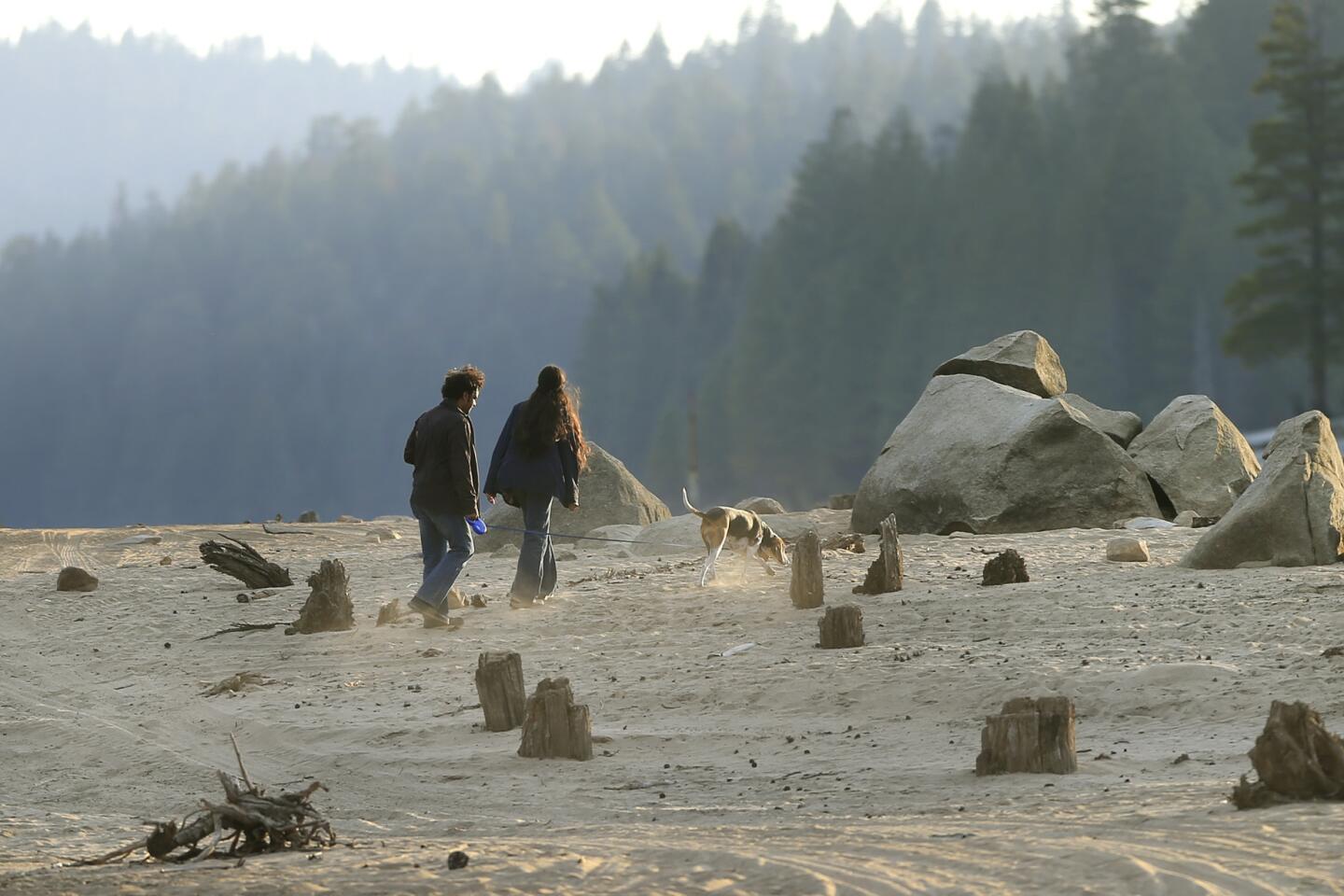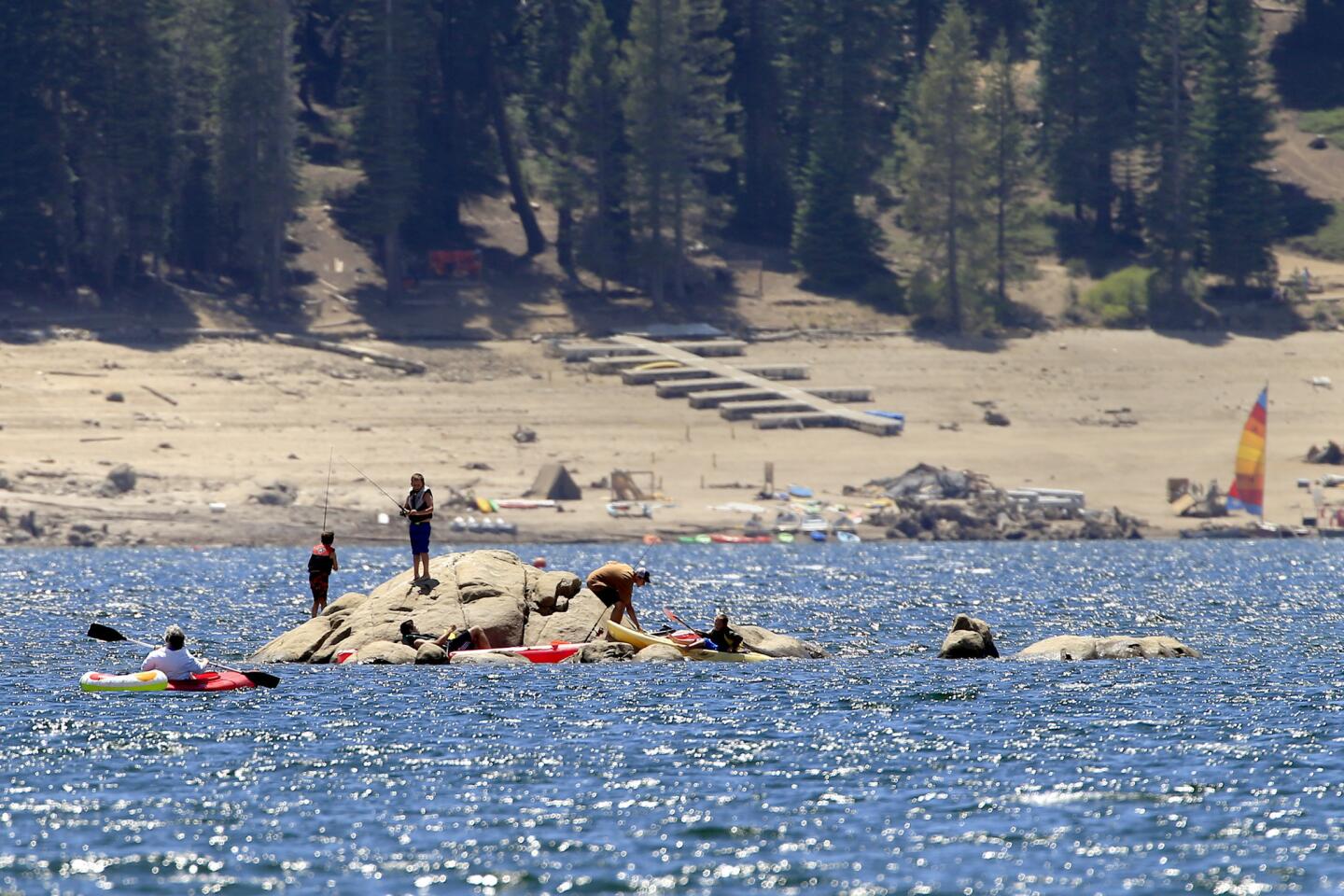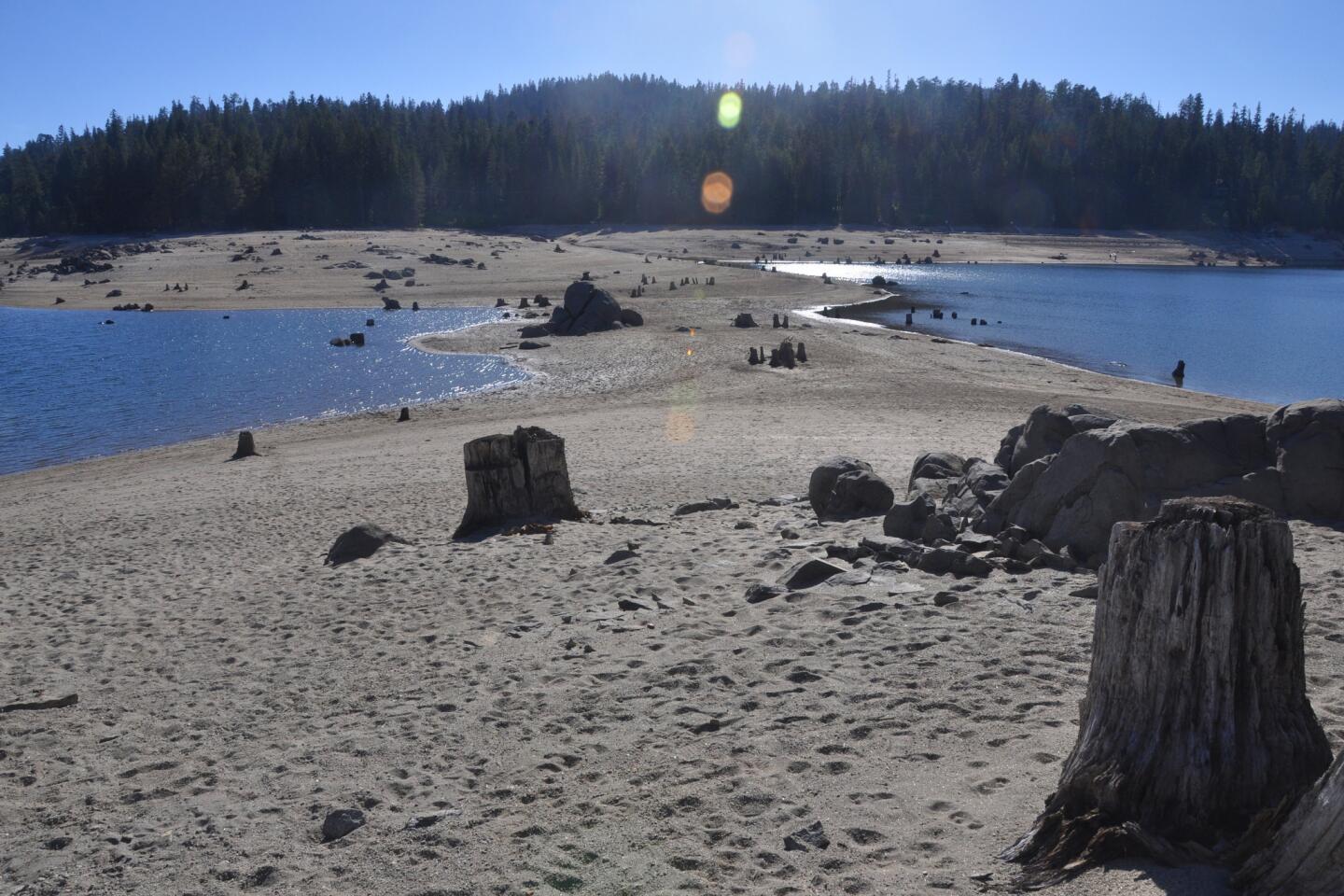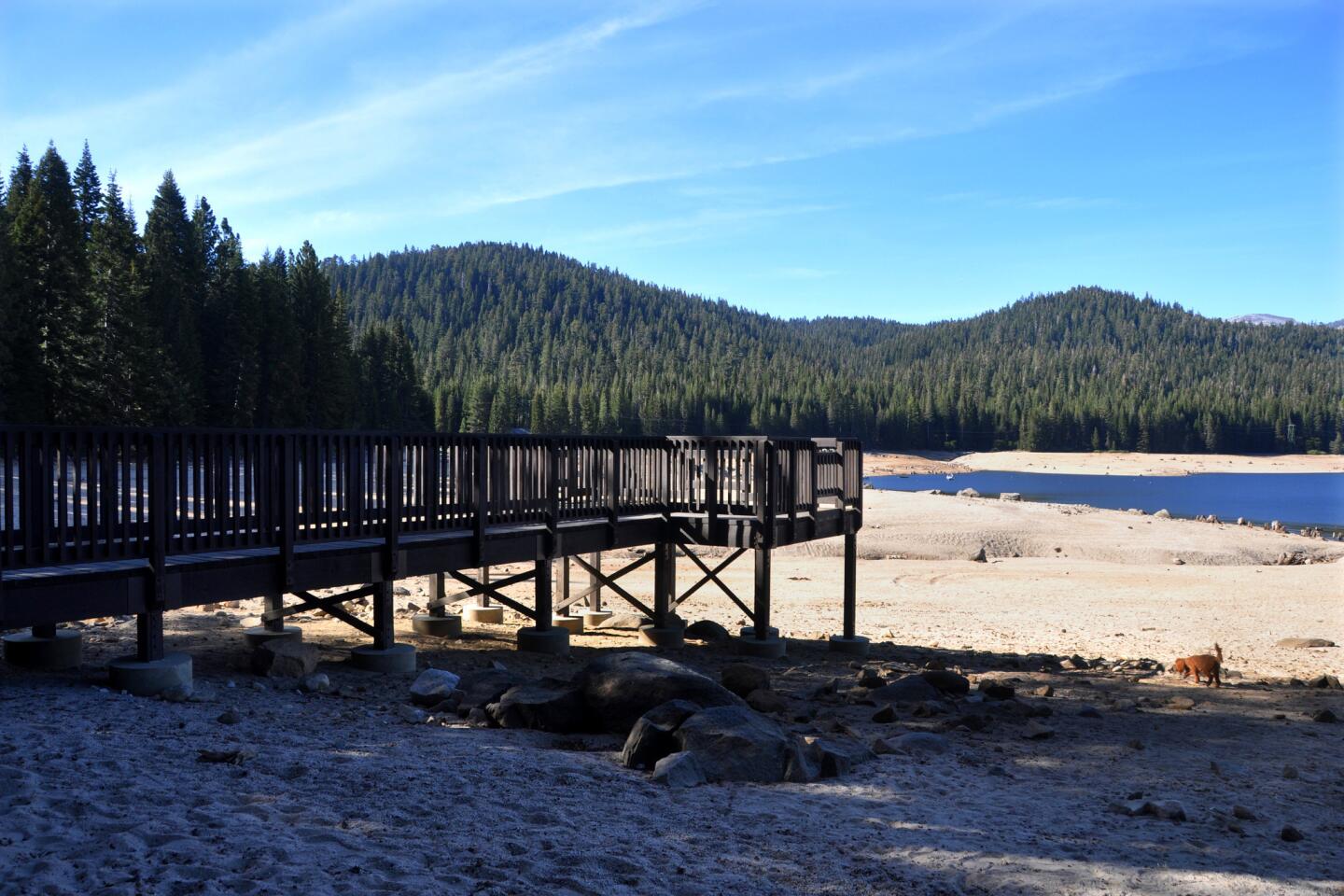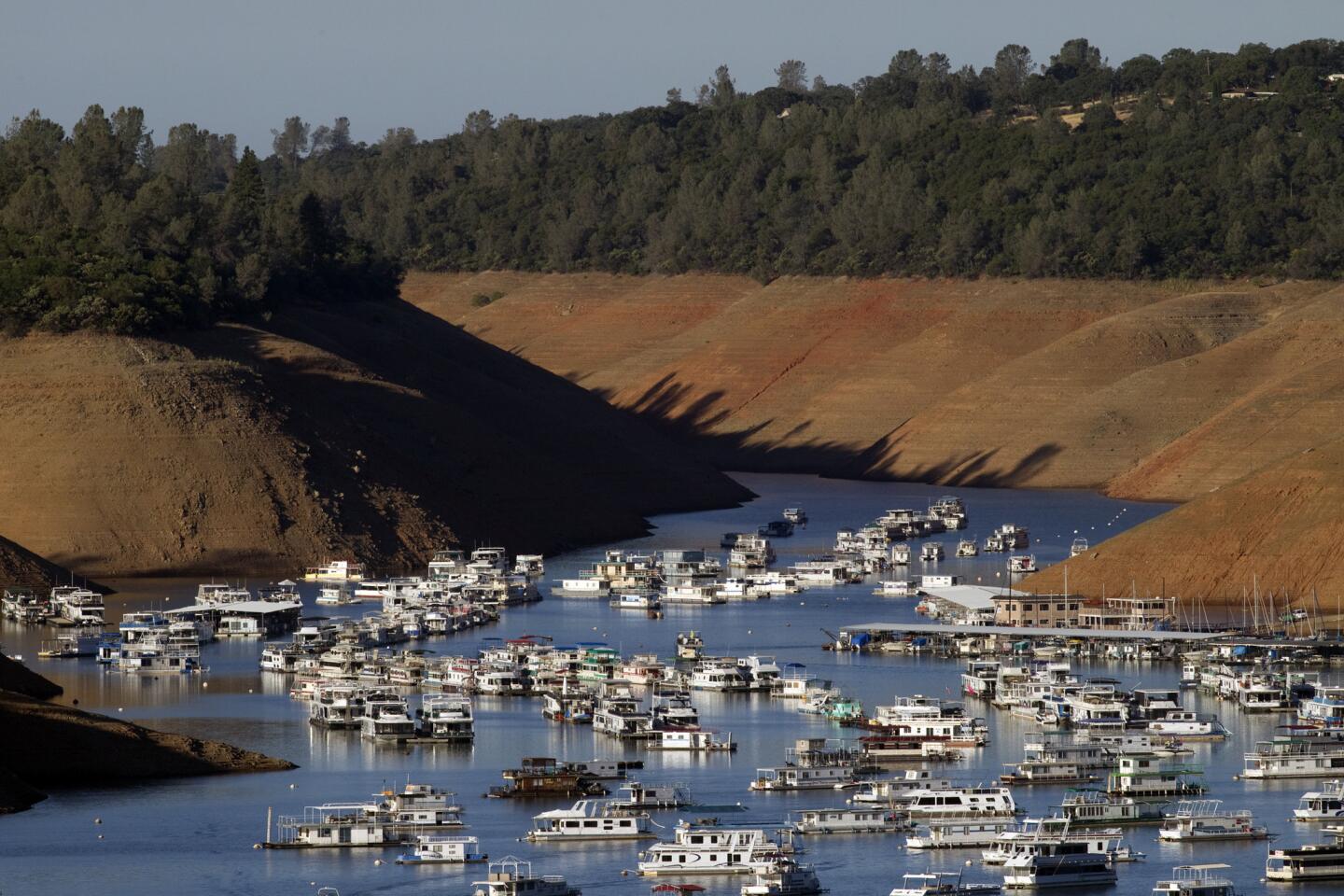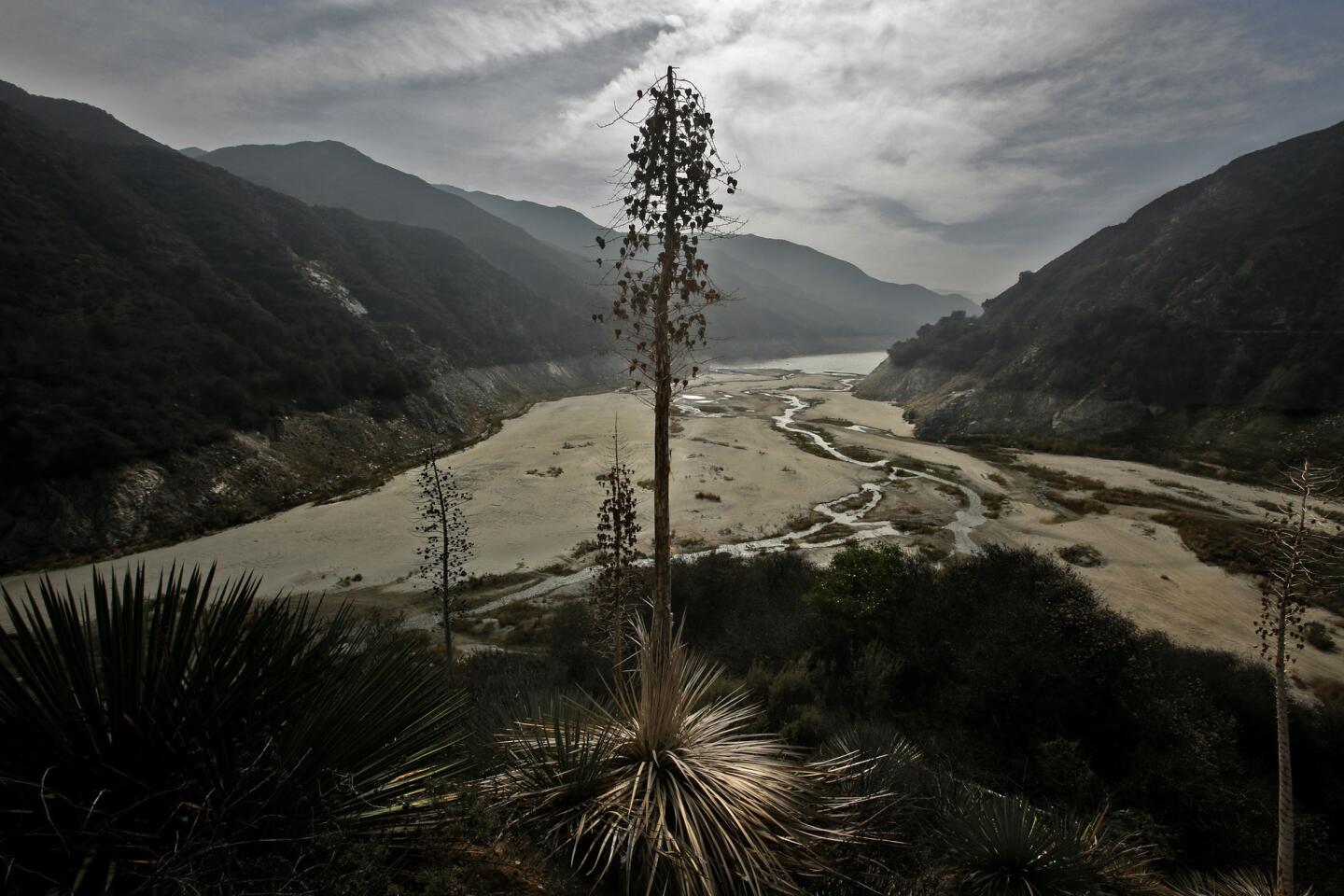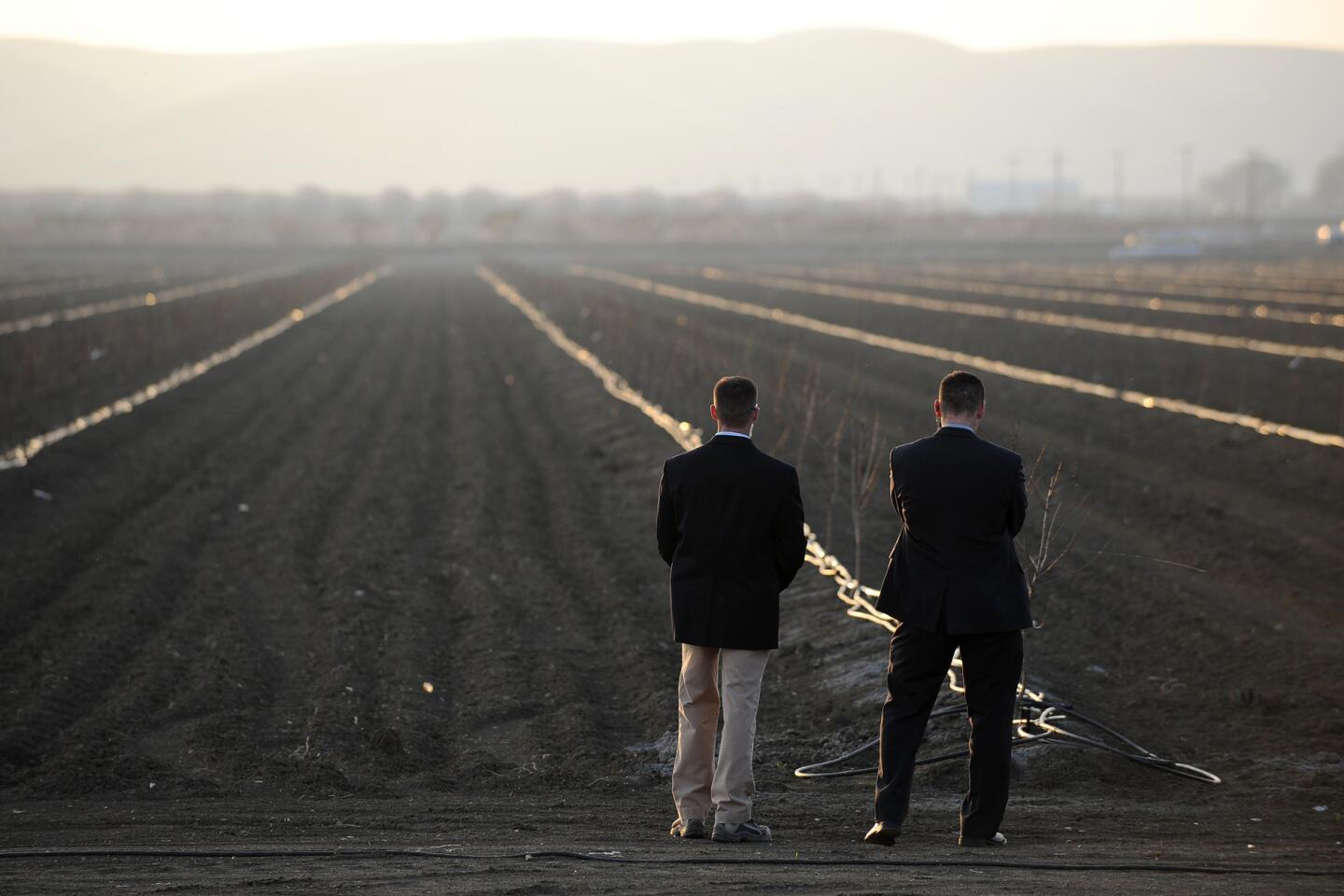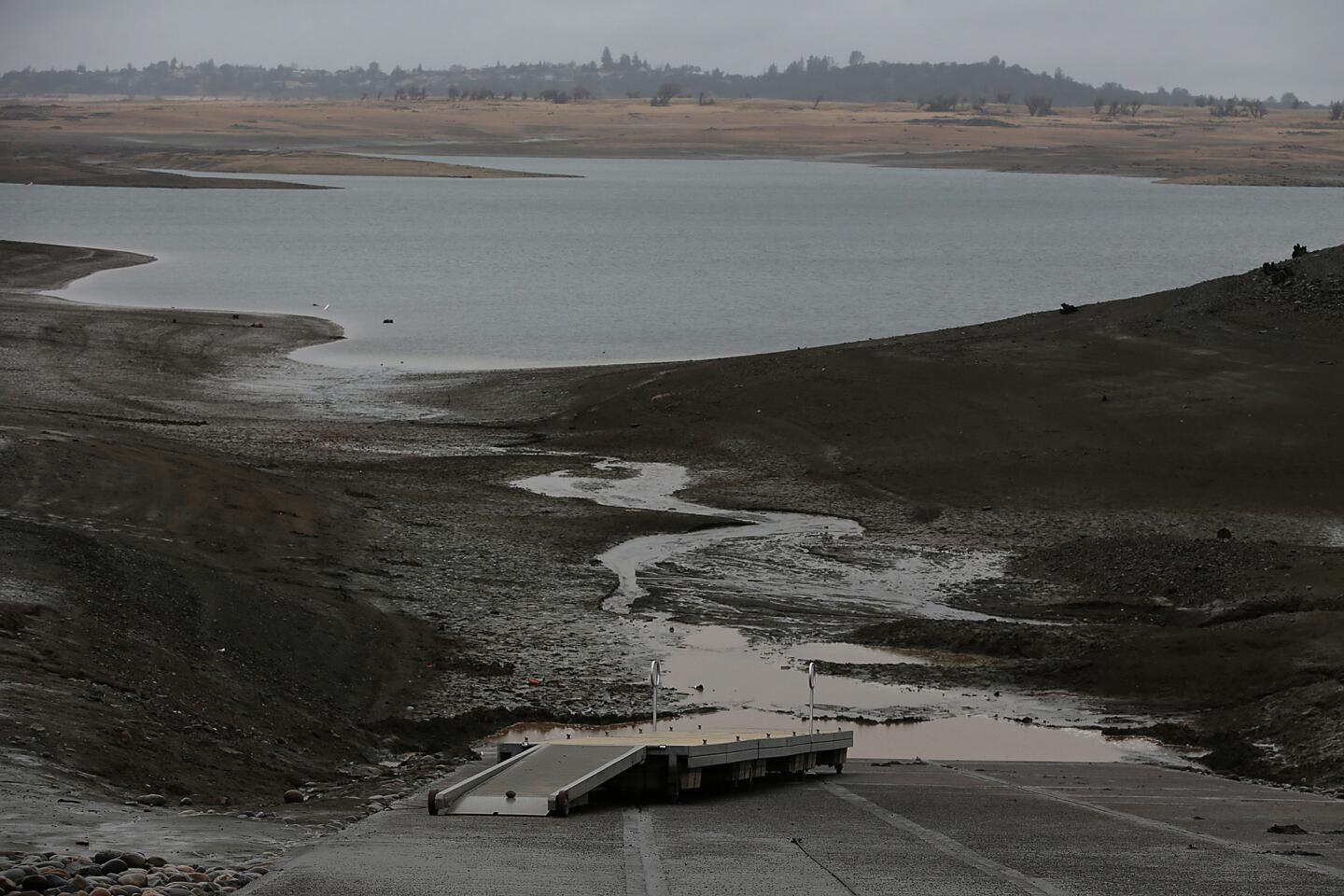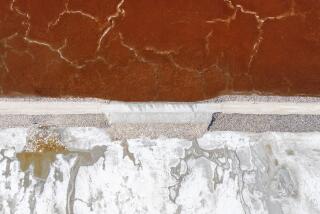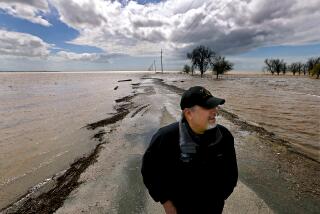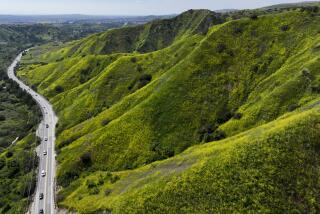California drought will only get worse, experts say
California is probably headed into a deeper drought this summer, making it harder to escape in the future, an expert says.
With more than 80% of the state in an extreme drought, dry conditions will probably continue and won’t improve much in the next few months, said climatologist Brian Fuchs of the National Drought Mitigation Center at the University of Nebraska.
The prolonged statewide drought means it will be “harder to break the cycle,” much like some thirsty regions in Oklahoma and the entire state of Texas, which have been struggling with drought since 2010, he said.
A U.S. Drought Monitor map released Thursday showed 81% of California in the category of extreme drought or worse, up from 78%. Three months ago, it was 68%.
Drought conditions in parts of Riverside, San Bernardino and San Diego counties also have worsened.
The maps created by Fuchs and 10 other climatologists are based on 50 indicators, including weather patterns, soil conditions and water activity.
“The impacts really tell the story,” he said.
The mapping project came about in 1999, when drought crippled Washington, D.C., and policy makers wanted to know its effect on the region. They funded an experiment requiring scientists from the center and the National Oceanic and Atmospheric Administration to work on a weekly detailed map, Fuchs said.
Soon enough, the maps became a vital part of determining the severity of a drought in a certain region. Months later, the U.S. Drought Monitor, which is produced by the center, NOAA and the U.S. Department of Agricultural, was established.
The maps’ authors weigh drought conditions in the U.S. from the low point of abnormally dry (D1) to exceptional drought (D4), the highest intensity.
With a great portion of California already in extreme drought, Fuchs said some have asked if it is possible to break through the highest level, an event that occurs once in 50 years.
A drought beyond that would have to be an event that happens once every 200 to 300 years, he said.
“It would be a significant event,” Fuchs said.
For breaking news in Los Angeles and throughout California, follow @VeronicaRochaLA. She can be reached at veronica.rocha@latimes.com.
More to Read
Sign up for Essential California
The most important California stories and recommendations in your inbox every morning.
You may occasionally receive promotional content from the Los Angeles Times.
